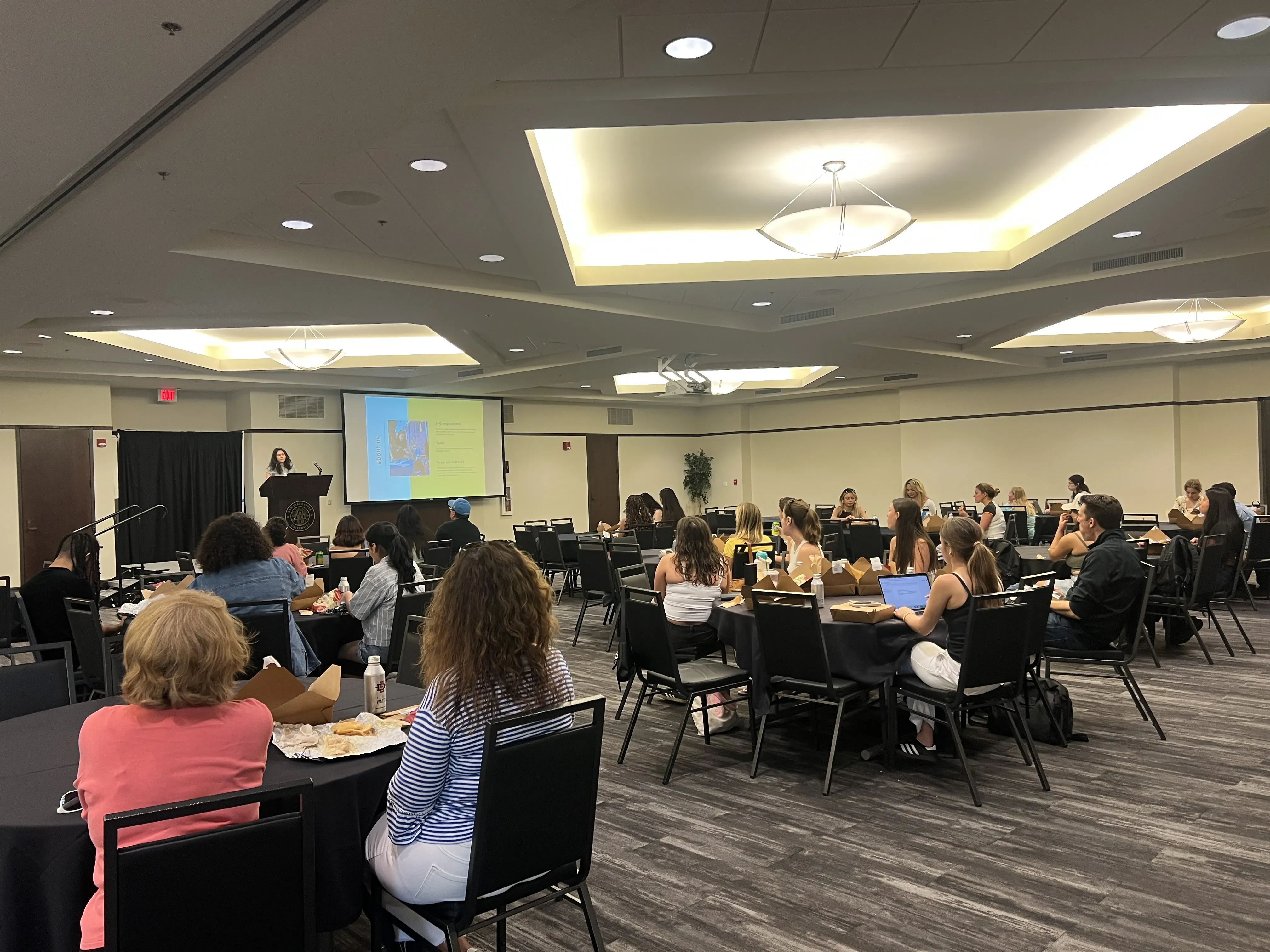
On February 25, 2025, San Diego State University’s School of Journalism and Media Studies, in collaboration with the Pulitzer Center, welcomed StoryReach U.S. Fellow Jasmine Aguilera, a senior health equity reporter and editor at the nonprofit organization El Tímpano, to speak to undergraduate and graduate students. Her talk focused on El Tímpano’s mission to serve Latino and Mayan immigrant communities in the Bay Area and highlighted its recent report, "Toxic Inaction."
Aguilera emphasized the importance of community-focused journalism, particularly in rebuilding trust among underserved populations. She described how El Tímpano engages with its audience through SMS messaging, weekly video series and in-person events, ensuring its goal of being a “consistent presence throughout the community.”
A key focus of the event was the recent project with StoryReach U.S., A Poisoned Community, an initiative addressing Oakland’s ongoing lead crisis. “We proposed a yearlong project,” Aguilera explained, “as it was something we wanted to dedicate significant resources, time, and energy to.”
Aguilera discussed El Tímpano’s partnership with UC Berkeley’s East Bay Academy for Young Scientists, which provided the reporting team with access to lead-detection tools. This enabled them to visit communities where lead was an issue and test samples of soil or paint from homes. “Every single sample tested positive,” Aguilera shared.
Aguilera went on to discuss how public records revealed that despite available funds, the City of Oakland had taken no action to address the crisis. The story became about inaction: Families were continuously exposed to lead while the city failed to act. She described the challenges of holding city officials accountable, noting that requests for comment were ignored for months. However, she stressed the importance of persistence. “Having the city in this discussion is crucial. They need to hear directly from the community and understand why this issue hasn’t been addressed,” she said.
Aguilera encouraged students to use community engagement in their own reporting, emphasizing that journalism today extends beyond simply publishing a story—it requires active involvement with the communities being covered.
“Rebuild trust where it was lost,” said Aguilera. “You'll become a source of information for people who don't really know where else to turn for trustworthy news that doesn't just make them feel scared about the world, but is something that they can act on.”
She also described how simply being present in a community - whether it is through local events, gathering spaces or information tables - allows journalists to connect with the people they are covering. “Even if you’re not getting a story out of it immediately, just showing up builds brand awareness and positions you as a trusted source,” she said.
For Madison Cadena, a senior journalism student, Aguilera’s insights reinforced the significance of local reporting. “Community journalism is so important,” Cadena said. “El Tímpano’s approach to engagement really stood out to me, and it’s something I want to apply in my own career.”
When asked for advice on pursuing personal and impactful stories, Aguilera encouraged students to embrace collaboration. “Be open to partnerships. Put your ego aside and do what's best for the story. Make it so that the story shines as best as possible.”
Overall, the event provided students with insights into how journalists can actively engage with the communities they cover, as demonstrated through the A Poisoned Community project. Aguilera also shared advice on how to approach such issues and offered tips on how to become the best reporter possible.





